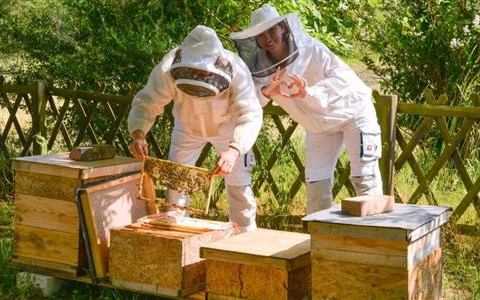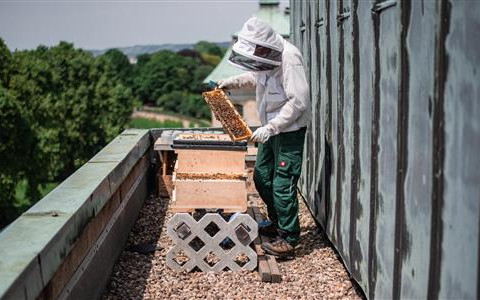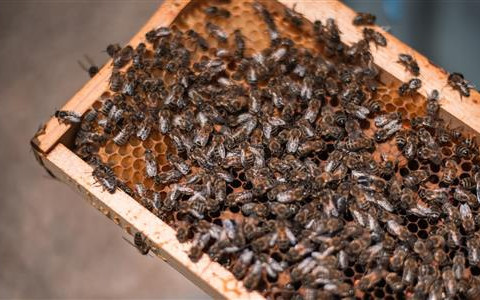Save the Bees
- MICE news
What does the Bellevue Hotel have to do with your "bee business"?
Wolfgang Zell: The Bellevue Hotel is one of our honey sponsors. We don't have that much space here in Calau to produce a large amount of honey. A request from a hotel in Berlin gave us the idea: we built up our network of hotels that provide us with areas from their roofs. There we place the beehives and colonies.
Why roofs and why hotels?
Wolfgang Zell: Roofs are a good place to avoid vandalism. And hotels, because with them we have another distribution channel besides our online shop. In the case of the Bellevue as the largest city centre hotel with 340 rooms, we reach many guests. We also benefit from the hotel's surroundings. First of all, Dresden in itself: hardly any other city in Europe has such a large variety of trees. Furthermore, with its 20,000 square metres of garden as well as its direct location on the Elbe meadows, we have found the best possible location at the Bellevue. The bees feel right at home here. It is the only hotel in Dresden that we work with and, incidentally, one of the first hotels that we have approached since we started our business. The Bellevue is thus a founding member of Salubria, so to speak.
How does the cooperation work?
Wolfgang Zell: It's quite simple. We have placed a total of four bee colonies with a total of 150,000 bees on the roof of the Bellevue. They move around within a radius of about 4 kilometres and collect nectar from the blossoms of flowers and trees. I visit them six to eight times a year and take out the honeycombs with the honey. At our "production site" in Calau, the honey is then spun out of the combs, sieved, cleaned and filled into jars for sale.
How does Bellevue honey taste?
Wolfgang Zell: Acacia and linden trees in particular give Bellevue honey its characteristic taste. Nevertheless, it has to be said that the flavour is different or differently pronounced depending on the season and the time of flowering. In summer, the honey is rather lime-heavy and minty, while the honey from spring is somewhat stronger. See for yourself and find out what "the Bellevue tastes like".
The General Manager of the Bilderberg Bellevue Hotel Dresden, Sebastian Klink, adds:
"We at the Bellevue have already dedicated ourselves to many topics that will shape the future of tourism and society. Sustainability has long been one of the global megatrends. In discussions with MICE and corporate clients as well as leisure guests, it is becoming clear that sustainability is becoming a kind of knock-out criterion, no longer a goodie but simply a standard. The fact that many workshops and lectures at this year's IMEX in Frankfurt focused on the topic of ESG (Environmental, Social and Corporate Governance) shows that sustainable offers & programme items are becoming indispensable during a conference. We do justice to this with various measures: the preservation of bee populations and the production of our hotel's own honey are just as much a part of this as the implementation of e-charging columns or a sustainable form of energy generation. But more on that later."


